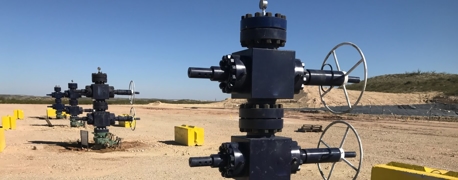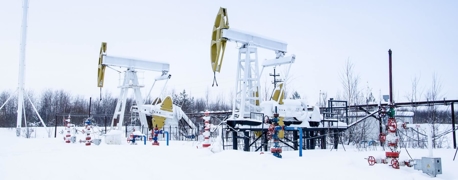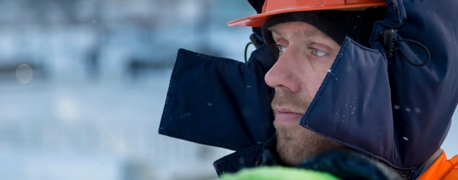8 Most Dangerous Oil Companies to Work For

According to the Bureau of Labor Statistics, more than 1,000 workers were killed in oil and gas extraction operations from 2006 to 2017. Nearly half of those workers were killed after 2013, bringing the fatality rate of the whole industry to 6x the national average. The most common cause of death was contact with objects and equipment, which accounted for 1 in 4 worker deaths during that period.
Working in the oilfield or on an offshore rig is a risky endeavor. There’s no denying that the pay is good and the work itself can be rewarding, but for hundreds of workers over the last several years, it’s come at a steep price.
Most Dangerous Oil Companies in the U.S.
For the sake of workers and their families, we’ve taken a look at the latest official data to compile a list of the 8 most dangerous oil companies to work for, based on fatalities and “recordable incidents.” A recordable incident is any work-related injury that ends in fatality, loss of consciousness, time away from work, or restricted work activity after the incident.
For these numbers, it’s worth keeping in mind that entire sectors of industry can go a year or more without a single death. The fact that any single company can have multiple is a testament to the danger of their workplaces.
Schlumberger
Headquartered in Houston, Schlumberger operates in 120 countries and is the world’s largest offshore drilling company. It was founded in 1926 in Paris, France where it still has an executive office. Schlumberger sites experience hundreds of recordable incidents every year, typically between 230–560.
From 2018 to 2020, 9 Schlumberger workers died on the job.
Halliburton
Founded in Oklahoma in 1919, Halliburton has grown into one of the most (in)famous energy companies in the world. They’re also the world’s leading hydraulic fracturing (“fracking”) company. Halliburton currently operates in 70 countries and has over 42,000 employees. The company has between 130–350 of “recordable incidents” every year.
From 2018 to 2020, 5 Halliburton workers died on the job.
Fluor
Fluor Corp. is a large multinational corporation based in Irving, TX. They were founded in Wisconsin in 1912 and have child companies that provide services in oil and gas, industrial and infrastructure services, and other industries. As of 2022, they employ over 40,500 people.
From 2018 to 2020, 5 Fluor workers died on the job.
Baker Hughes
Owned by General Electric, Baker Hughes is one of the world’s premier providers of oilfield services. Its products and services assist with oil drilling, production, and reservoirs. One of its subsidiaries includes GE Oil & Gas.
From 2018 to 2020, 1 Baker Hughes worker died on the job.
Petrofac
Based in Jersey in Great Britain, Petrofac Limited is an international energy services company with 8,500 employees worldwide. It was founded in 1981 in London.
From 2018 to 2020, 5 Petrofac workers died on the job.
Saipem
Saipem is a multinational oilfield company based in Italy and is one of the largest oilfield companies in the world. It was founded in 1957 and now employs 32,000 people worldwide. From 2018 to 2020, there were 113 injuries at Saipem sites that required time off from work.
From 2018 to 2020, 9 Saipem workers died on the job—the most of any other company on this list.
Transocean
Based in Switzerland, Transocean is an American offshore drilling contractor—the largest in the world, based on revenue. It was founded in 1952 and today employs 6,600 people. Transocean has, thankfully, experienced no fatalities over the last few years. However, the company is perhaps best known as the owner of the Deepwater Horizon when it exploded in 2010. The rig, leased to BP, experienced a catastrophic failure and led to the injury of over 100 workers and the deaths of 11 people.
The cause of the failure was ultimately traced back to a failed blowout preventer.
Valaris
An offshore drilling contractor based in Houston, Valaris is the largest offshore drilling and well drilling company in the world. It owns 56 rigs, 11 drillships, and 5 semi-submersible drilling rigs. It was founded in 1975 in Dallas and today employs 4,900 people. Though it is headquartered here in Texas, the company is incorporated in London.
The company filed for bankruptcy in 2020 to address its massive debt. While the company has thankfully avoided any fatalities as of late, its “Recordable Incident Rate” is rather high for a company of its size. Additionally, the issue of bankruptcy might indicate the company is in a weak financial state, which could lead to pressure to cut corners on safety to drive up production.
Why Arnold & Itkin Advocates for Oil & Gas Workers
At Arnold & Itkin, our job is to hold companies like these accountable, no matter how big. The pressures of running a multinational oil-and-gas company might tempt executives to push production too hard, to skip vital safety procedures, and put workers at risk. We saw it happen to Transocean, to Exxon, to TOTE Maritime, and to many, many others.
Our job is to advocate on behalf of workers who’ve been harmed by neglect or carelessness so they can rebuild their lives. By pouring all of our effort into preparing cases for trial, we’re able to pressure oil companies into doing the right thing for their injured employees. It’s an approach that’s won our clients more than $20 billion in some of the biggest victories the injury law community has ever seen.
If you were injured, call (888) 493-1629 to discuss your legal options in a free consultation as soon as possible. Let’s find out how we can help.


